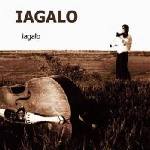
Songs
IAGALO are:
Vasile Dinu – voices, small cimbalom
70 years old. Charismatic figure, he has an exceptional voice, perhaps the best in the country at this style of music. In over 50 years of musical career he succeeded to gather around him the best fiddlers that ever existed in Romania. He is also known as MC VASILE.
Tagoi – accordion, voices
52 years old. One man show - he plays accordion from the age of 8. He’s the son of CULAE, one of the founding members of the Taraf de Haïdouks. Tagoi had inherited the taste for performance from his father. He has a 50 songs repertoire.
Robert Gheorghe – violin
19 years old. He is the son of CALIU, one of the best gipsy violinists in the world. It is said that Robert follows already his father’s steps.
Andrei Ganea – violin
65 years old. Maestro of improvisations - his talent and spontaneity brought him fame even in Japan.
Vasile Vlad – up-stand bass
20 years old. He could play even in a symphonic orchestra.
Costică Dinu - cimbalom
39 years old. His cimbalom is a gift from TONI IORDACHE, a legendary figure in Romanian traditional music.
TRACKLISTING
------------
01.Hora De La Re
02.De Trei Ori Potcovi-i Calu’ / Di-di-di Murgule Dii
03.Ia-ti Mireasă Ziua Buna
04.Sârba De La Cosoaia
05.Gypsy Song
06.Iesi Mândruto Până-n Prag
07.Hora De La Vadu’ Lat
08.Maică Măiculita Mea
09.Hora Florăreselor
10.Dragostea
11.Hora De La Mârsa
12.Cuculeţul Ca La Mârsa
13.Dialogue (feat. Napoleon from Shukar)
IAGALO - The lăutari of Mârsa are perhaps the most inspired and fervent of all traditional musicians in Romania. The exuberant, musical style of their native southern region has certainly stimulated them in this respect. We must also take into consideration the fact that the village is an old "music school" of Muntenia Region which trains its disciples by requiring their total implication in the art of their choice: sound, dance, gesture and pantomime. But it would be unfair to ignore their superb endowment. The traits they all have in common are imagination and impetuosity. Each musician, however, has his own distinct personality, inclinations, aptitudes, qualities and performances.
Mârsa is a Danubian village lying not far from Bucharest and some 10 km from Clejani, the native locality of the musicians who have earned fame in Europe as the Taraf de Haïdouks. The whole region of Vlaşca is known for its vivid, heartfelt music most of which is improvised and which the West views as Gypsy music due to its note of oriental sensuality (specific, in fact, to much of the Lower Danube Plain). The instruments of the traditional ensemble are violin, small cimbalom, accordion and double bass. The instrumentalists are also vocalists. The musicians (called 'lăutari') play and sing lyrical tunes, 'long songs - doina' with lyrics evoking passionate love, ballads, nuptial songs (for the bridegroom, the bride, the godparents, the ritual fir-tree etc.) and dance tunes.
The IAGALO repertoire includes: ballads, hore, sârbe, doine. They are the keepers of a 200 years old musical tradition. Cuculetu’ de la Mârsa, Hora Florăreselor or Dragostea are few of the songs that defined the Romanian folklore as one of the richest and sensible in the world.
The Roma musicians of the IAGALO ensemble have been lăutari from generation to generation. They live amid the Romanian community and are appreciated for their honesty, hard work, and virtuosity. Most Saturdays and Sundays except during the major Christian fasting periods (before Easter and Christmas, for instance) villagers hire them to play at weddings, baptisms, birthday and other family parties, as well as at pastoral or agrarian feasts. Yet it is at weddings that they are at their best. Here they play for hours, passionately and with great skill; sometimes staging fierce vocal contests that delight the audience.
Unlike their neighbors and friends from Clejani, the musicians of IAGALO cannot speak Romani or play the specific tunes of the Roma people living in this area. They consider themselves to be 'disclosed Gypsies,' that is people of undoubted Roma ancestry but who have long been integrated in the Romanian community. They have not had stable relations except with the Roma people in their trade. But then neither do they think of themselves as Romanians. Truth is the musicians of IAGALO are people with a twofold identity. The most solid link to the Roma ethnic group is that of their doing music for a living, their devotion and talent in this respect being worthy of admiration.


